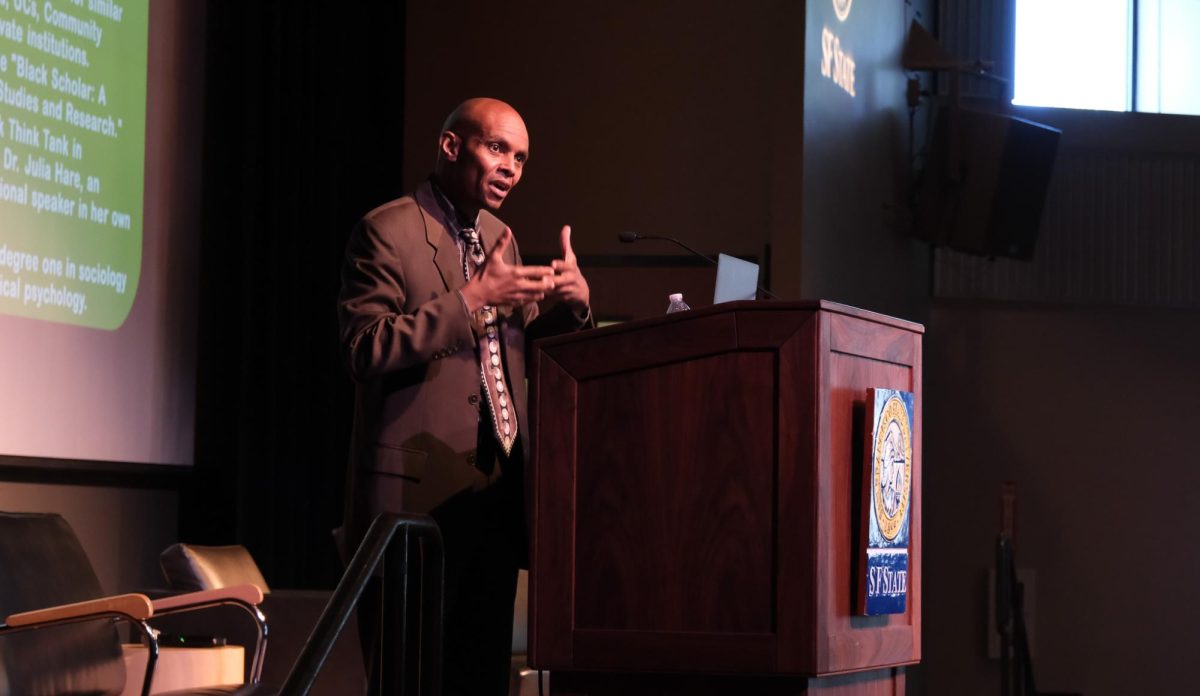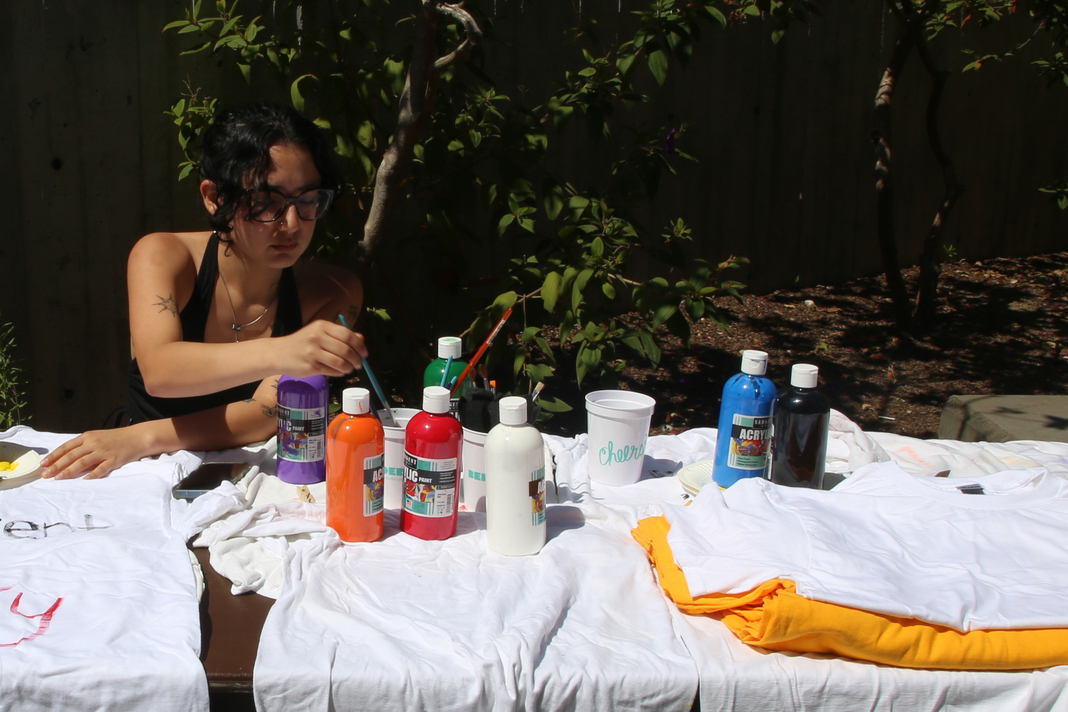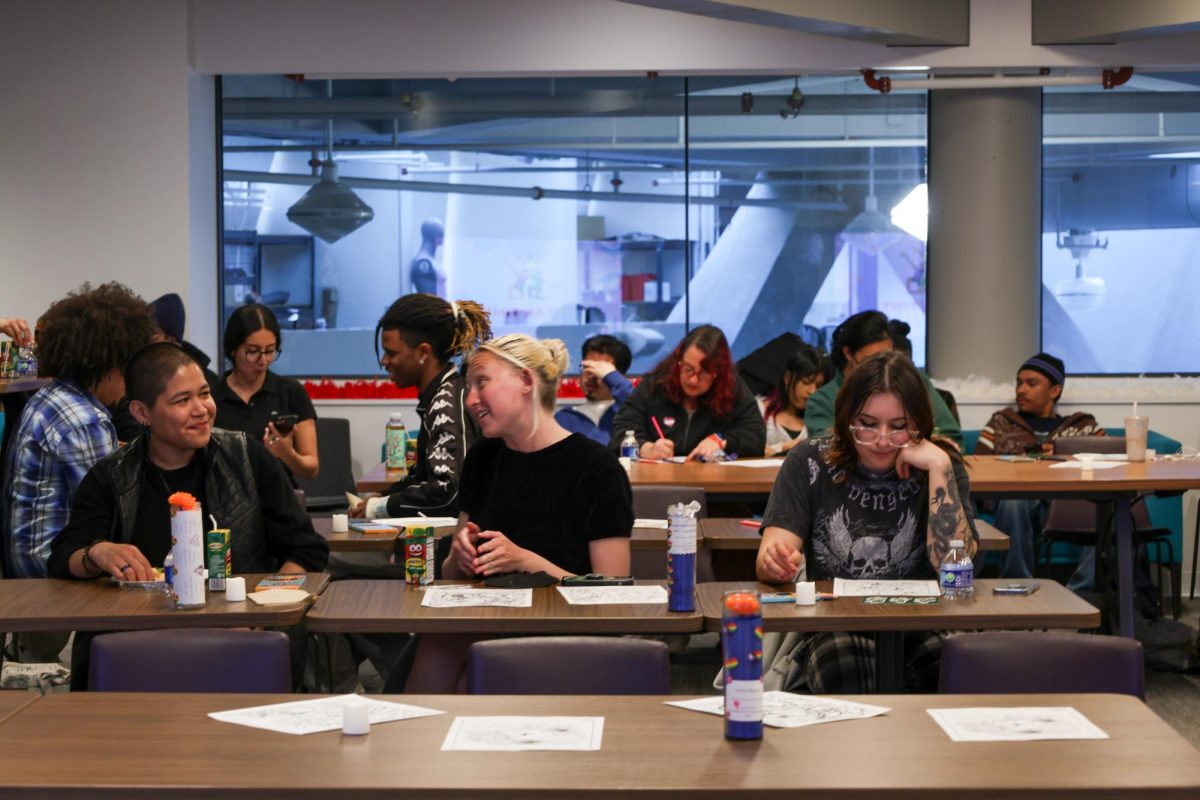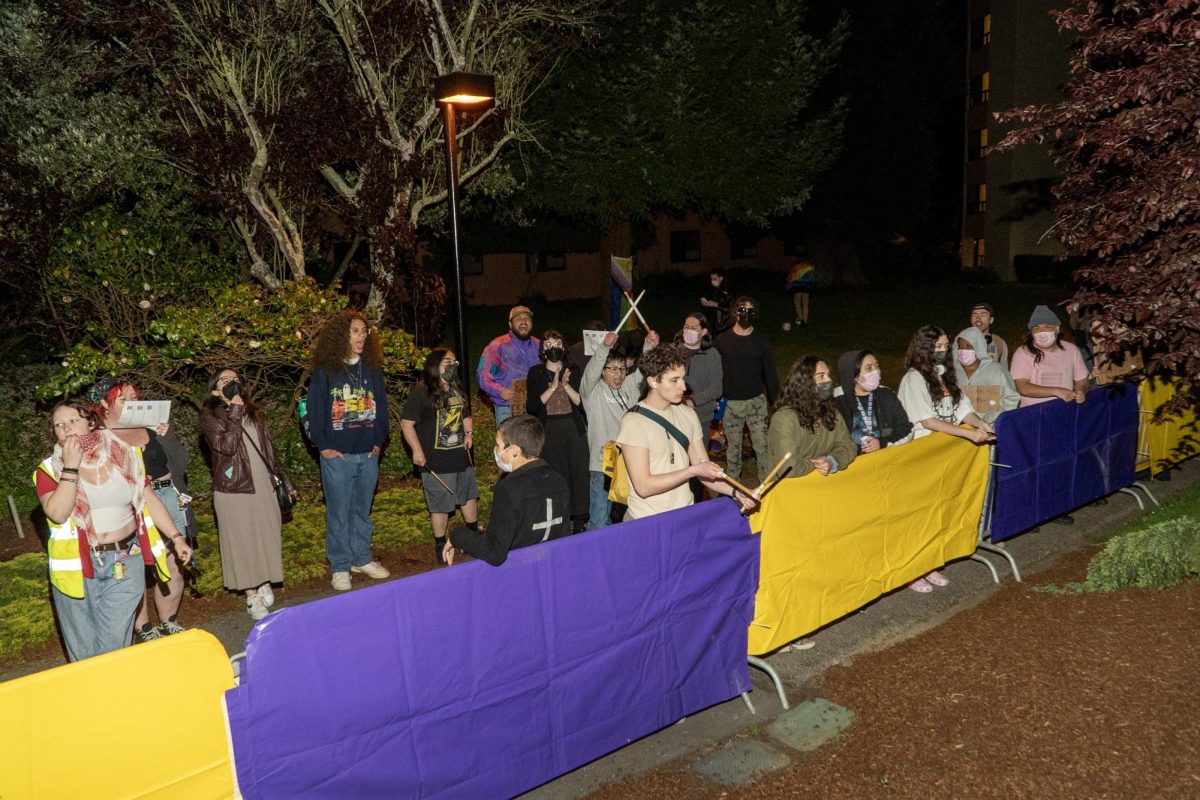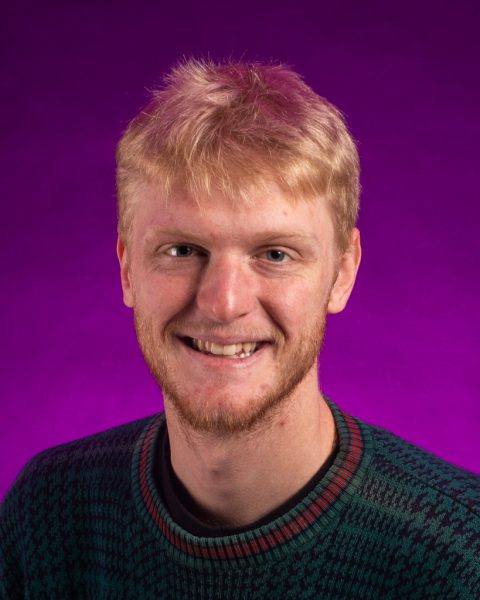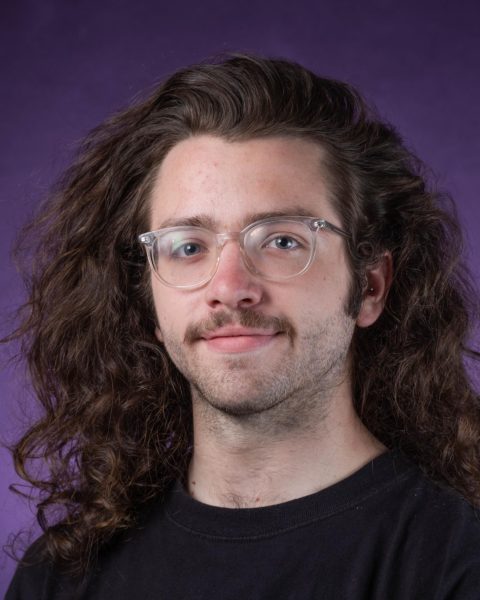On Nov. 6, 1968, a 133-day strike began at San Francisco State University, during which students, staff and community members demanded the establishment of an ethnic studies college. Fifty-five years later, the SFSU community still commemorates the struggle for an educational system that recognizes the diverse racial and cultural backgrounds of all students.
The College of Ethnic Studies has hosted multiple events over the last month to celebrate the strike and the formation of the department. SFSU’s ethnic studies program marked the first of many across the United States. Ethnic studies programs that formed on campus following the 1968 strike include Africana Studies, which was originally called Black Studies, Latino/Latina Studies, which was originally called Raza Studies, American Indian Studies, Race/Resistance Studies and Asian American Studies.
Students and staff at SFSU from all different cultural backgrounds participated in the strike and are encouraged to participate in the commemoration events. The events bring back members of the 1968 strike and other activists to connect students with the history of SFSU and celebrate ethnic studies.
The next event is on Nov. 6 in the Cesar Chavez Student Center at noon. Students and staff will meet and have lunch with SFSU alumni who participated in the strike.
Tiffany Caesar is an assistant professor in Africana Studies and commemoration chair for the 55th anniversary of the 1968 student strike.
As an educator in the ethnic studies field, Caesar sees the strike as a catalyst for a more equitable education system.
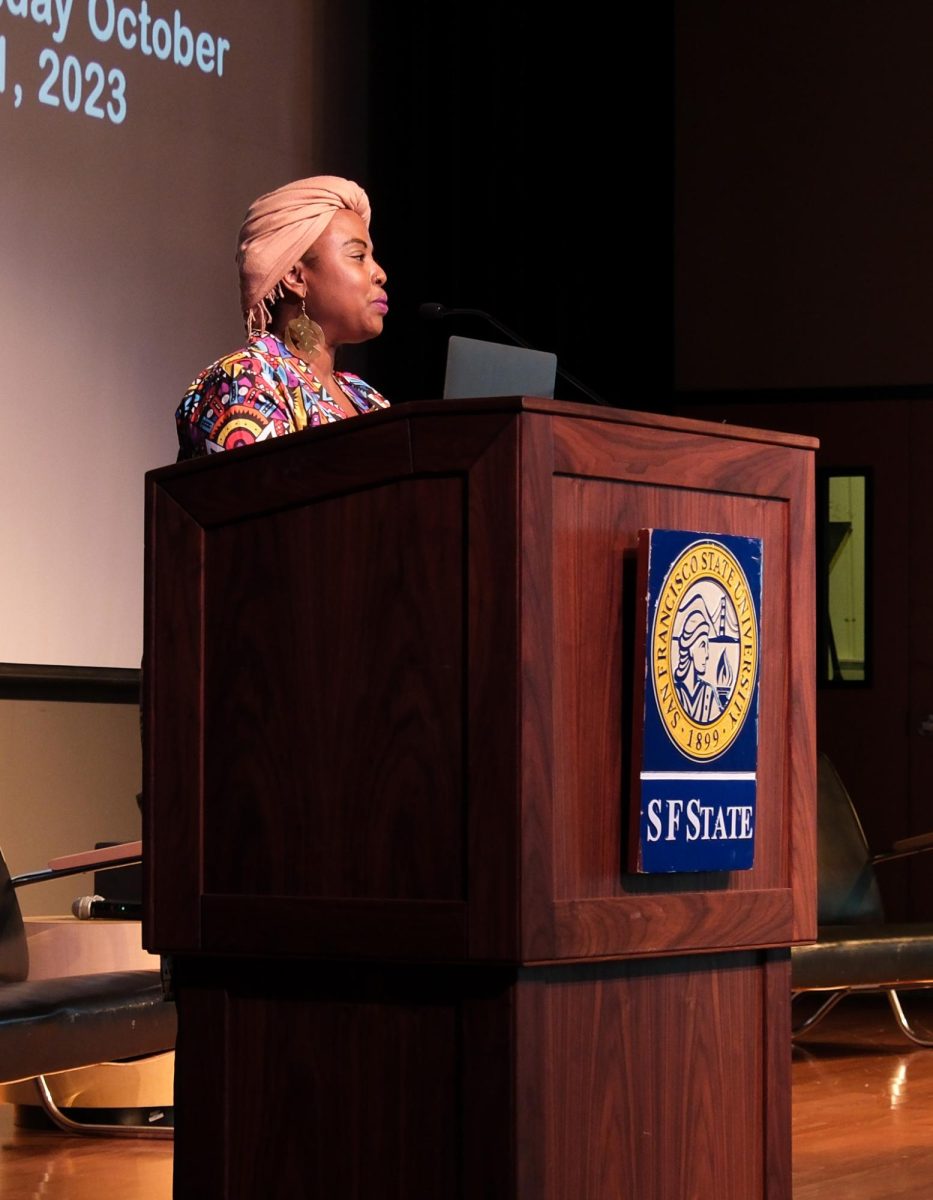
“All of those students, particularly the students in the Black Student Union who were the catalyst group, really promoted the strike to dismantle higher education and create a curriculum that’s more culturally relevant for marginalized students,” Caesar said.
Nico Estilo is an SFSU student and member of the Asian Student Union. Founders of ASU at SFSU were integral parts of the strike alongside the BSU.
“Ethnic studies is really important not just for college students, but students at any level,” Estilo said. “High school, middle school and elementary school all show a disparity of what is taught based on the Eurocentric teachings constantly pushed on students.”
Estilo says it wasn’t until he got to SFSU that he encountered an education that took his culture into account.
“I’m learning so much about Asian culture and the history of what it means to be Asian American,” Estilo said. “I think it’s such a great thing for everybody to have. Not just here in California, but nationwide.”
Shanice Robinson –– another host of the event –– is an SFSU alum and faculty lecturer within the Graduate College of Education. She also holds a doctoral degree in educational leadership. Robinson has helped organize the commemoration events alongside Caesar that have taken place on campus for the last month.
“We had the longest student-led strike in the history of higher education,” Robinson said. “If it wasn’t for this strike, we wouldn’t have the College of Ethnic Studies. That strike gave birth to other ethnic studies [programs] across the nation. We’re the blueprint.”
Robinson hopes students realize that the events happening on campus are a continuation and expansion of this history.
“This is the first time I’ve ever been able to come and feel like my identity and culture is celebrated, not eradicated,” Robinson continued. “Being able to work directly with people that are a part of the 1968 strike feels like something you only read about in history books.”
Pallavi Sharma is a student representative for the Asian Student Union at SFSU. The ASU stood and continues to stand side-by-side with members of the BSU in the 1968 strike and today, according to Sharma.
Sharma expressed similar pride to Robinson when speaking about the strike.
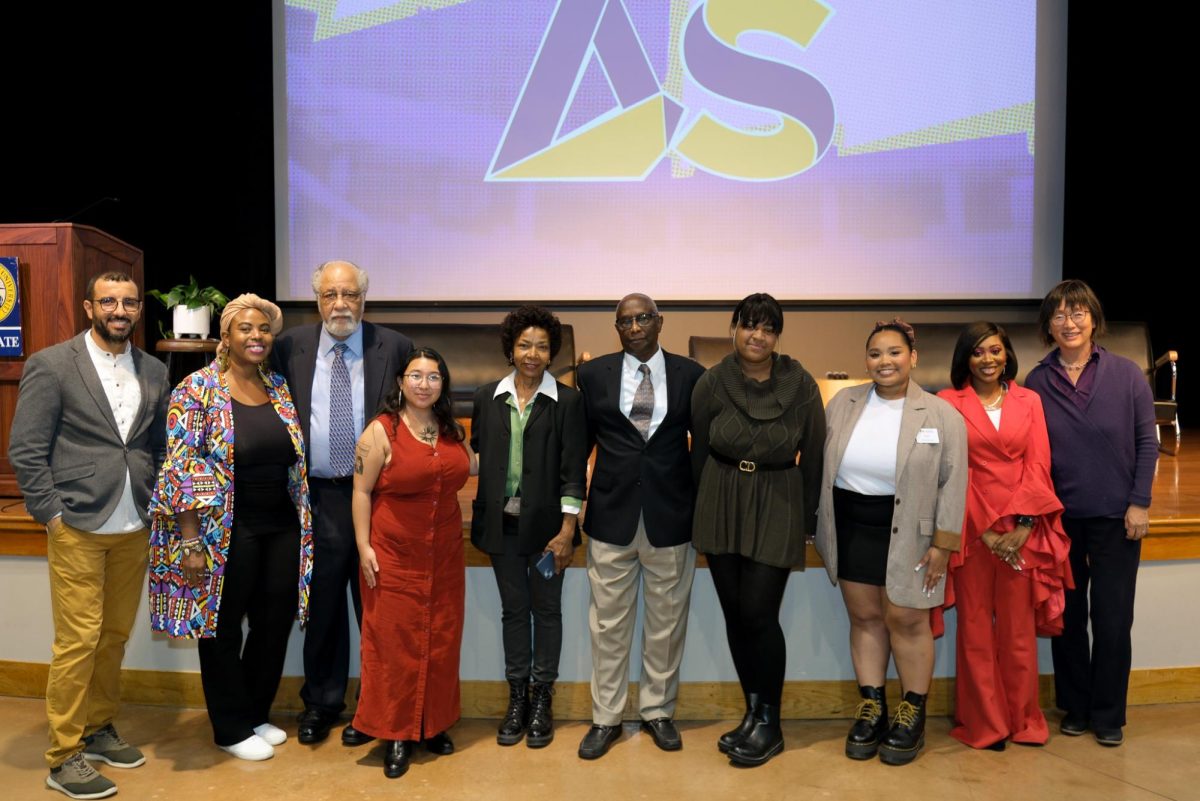
“It’s just really, really important,” Sharma said. “My student organization has history in it. Members of ASU and BSU made a big impact on the formation of ethnic studies. We are proud.”
Grace Yoo is a lifelong educator and began her career at SFSU 25 years ago in the ethnic studies department as a lecturer. She now serves as the dean of the ethnic studies department at SFSU and said that the 1968 strike was an impetus to her career.
“I chose SFSU because I knew that in this institution, I would be most likely to find colleagues and students with whom to collaborate to transform academia towards social justice,” Yoo said.
Yoo and several other colleagues are working on an oral history archive to honor the participants of the 1968 strike.
“I have had the honor to interview over 30 strikers about their memories of the strike. Many of these strikers went onto social justice careers – teachers, writers, social workers, lawyers,” Yoo continued. “The strike went on for five months and over 400 students were arrested and several students went on to serve prison terms. Those that participated experienced so much. They changed history.”
The next celebration will happen on the upcoming Nov. 6 and it will host 1968 SFSU strike participants in a meet and greet lunch in the Towers Conference Center, RSVP is required.





